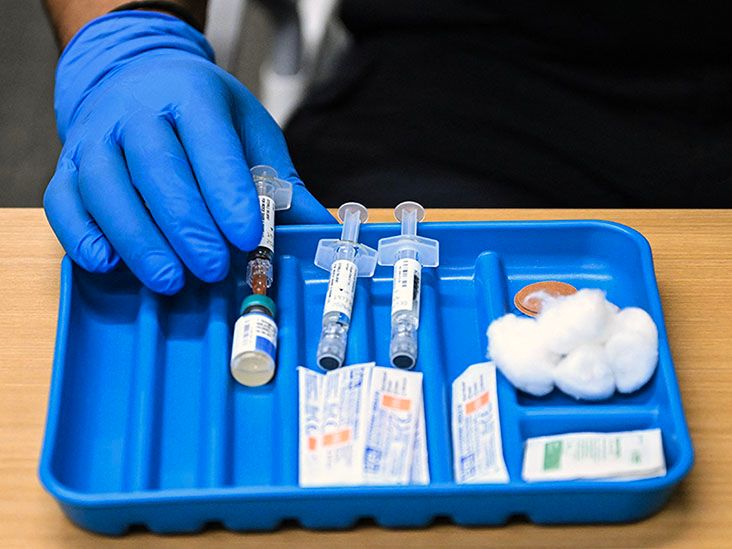Heart failure in infants is uncommon, but it can occur. A potential cause is congenital heart defects (CHDs). These are problems with the structure of the heart that are present from birth. CHDs affect 8 out of every 1,000 live births, but only 20% of those children will experience heart failure.
This information comes from a
Another cause of heart failure in this age group is cardiomyopathy, a condition that affects the heart muscle and makes it difficult to pump blood to the body. This affects around 8 out of every 100,000 infants annually.
Symptoms of heart failure include feeding issues, trouble breathing, excessive sweating, fast heartbeat, and fast breathing.
This article discusses the incidence, outlook, symptoms, causes, diagnosis, and treatment of heart failure in infants. It also offers recommendations for growing up with heart failure and tips for parents and caregivers.

The term “heart failure” does not mean the heart has stopped working. Instead, it means the organ is not functioning as effectively as it should. It occurs when the heart
Usually, a person’s heart receives oxygen-poor blood and then sends it to the lungs for oxygenation. The oxygenated blood then flows back into the heart, which pumps it out to meet the needs of the body.
In heart failure, an abnormality in structure or function
Very few infants develop heart failure. One of the main causes is CHDs, which are changes in the structure of the heart that are present from birth. CHDs occur in
Heart failure in infants can also occur for other reasons. One of these is cardiomyopathy, which has an annual incidence rate of
Statistics on survival rates for heart failure in infants vary depending on the cause. Some causes of these events are more severe and difficult to treat than others.
The most serious cause is critical CHDs. Infants with this type of heart problem need surgery or corrective procedures
An older 2013 study reports that although the outlook for CCHDs has improved over recent decades, the death rate remains high in infants.
The 1-year survival rate during 1994–2005 was 82.5%. This means over 80% of children survived for more than 1 year of life.
However, there is a more negative outlook for infants with heart failure due to cardiomyopathy. Approximately
Some potential signs of heart problems in infants include:
- feeding issues
- breathing trouble
- excessive sweating
- growth issues
- low blood pressure
Additional signs may include:
- a fast heart rate that exceeds
150 beats per minuteTrusted Source - a fast breathing rate that exceeds 50 breaths per minute
- enlargement of the liver
- heart rhythm that resembles the sound of a gallop
There are
Overcirculation failure causes
Overcirculation occurs when there is an overload of blood in the heart chambers. Several conditions may cause this.
One cause is a mix of oxygen-poor blood with oxygen-rich blood. For example, a hole between the right and left heart chambers may allow oxygen-rich blood in the left chambers to mix with oxygen-poor blood in the right chambers. The mixing of these two types of blood may also occur outside this organ.
Another cause of heart failure from overcirculation is anemia. It may also stem from a faulty heart valve that does not close properly, which allows blood to leak backward.
Pump failure causes
Pump failure means the heart does not pump a sufficient amount of blood to meet the body’s needs. The cause may be congenital or something an infant acquires after birth.
For example, a congenital disorder of the heart arteries may prevent blood flow to the heart muscle from birth. An acquired cause of pump failure could be a viral infection that a child contracts later on, damaging healthy heart muscle. Both types weaken the heart’s ability to pump blood.
A doctor
If they suspect heart failure, the doctor may refer the child to a pediatric or congenital heart cardiologist, who may order additional tests.
This may include an EKG to evaluate heart rhythm and an echocardiogram, an ultrasound of the heart that assesses heart function and structure.
Treatment for heart failure in infants depends on the cause.
Treatment of overcirculation
Initially, treatment for overcirculation may involve taking medications, such as diuretics, which reduce the excessive blood volume and lower blood pressure.
However, if CHDs are the cause of overcirculation, surgery is
Because overcirculation can lead to growth issues, treatment may also include nutritional supplements and dietary changes, such as decreasing salt intake.
Treatment of pump failure
If a pump failure is the cause of heart failure in a child, a doctor
- diuretics and other medications to lower blood pressure and help the heart pump better
- a pacemaker to correct a slow, fast, or irregular heartbeat
- medications to slow a fast heartbeat
- radiofrequency ablation, which involves delivering short bursts of radio waves to the part of the heart muscle causing a fast heartbeat
- surgery, such as replacing a damaged heart valve
According to the
- Keeping up-to-date health records: Parents and caregivers can make medical appointments easier by keeping organized records of their child’s condition, including the type of heart condition they have, previous treatments they have undergone, and medications they take.
- Visiting the doctor regularly: As a child grows, further heart problems may develop that make additional medications and surgeries necessary. For instance, a child may have a higher risk of acquiring atypical heart rhythms, high blood pressure in the lung arteries, or infective endocarditis. Therefore, frequent checkups and screenings are important to treat complications early.
- Getting nutritional and dietary advice: Children with CHDs may be smaller and thinner than their peers. Dietary recommendations from a doctor can help encourage weight gain and ensure adequate nutritional intake.
- Getting exercise advice: Getting regular exercise is important for children to stay healthy, but those with heart failure may need special guidance on which activities are safe. Parents and caregivers should seek professional advice about this from their doctor.
As well as taking care of their physical health, it is also important for people to be aware of how having a serious heart condition can affect children mentally. Parents, caregivers, and teachers can play a role in fostering healthy self-esteem, helping children manage their emotions, and staying connected with friends.
Heart failure in infants
Heart failure is not common in children, but it is serious. It is important for infants with this condition to receive regular medical attention throughout their childhood to ensure they stay as healthy as possible. Parents and caregivers may benefit from advice on nutrition, exercise, and supporting their child’s development as they grow up.


